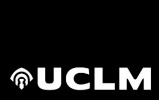Mathematical models for vector-borne infections (I)

Organizers: Christopher Kribs & Andrea Pugliese
10:40 – 11:00 – The impact of infestation behaviors on vector-borne disease: cofeeding transmission dynamics / Presenting author: Jianhong Wu.
11:00 – 11:20 – Spatio-temporal dynamics of arbovirus transmission and control / Presenting author: Ilaria Dorigatti.
11:20 – 11:40 – Modeling the risk of arboviral transmission at detailed spatio-temporal
scales / Presenting author: Piero Poletti
11:40 – 12:00 – Estimating the risk of vector-borne disease spread in seasonal
environments / Presenting author: Kyeongah Nah
Collective behaviour across scales: drawing parallels from cells to humans

Organizers: Andrei Sontag & Kit Yates
10:40 – 11:00 – Self-organitation in multicellular syste from collective motion to stem cell pattering / Presenting author: David Brückner.
11:00 – 11:20 – Mechanims underlying synchronization during collective hunting in social spiders / Presenting author: Violette Chiara.
11:20 – 11:40 – Collective decision making in locust groups / Presenting author: Kit Yates.
11:40 – 12:00 – Pathways for overturning consensus in human collective decision-making / Presenting author: Andrei Sontag.
Thermodynamics of living systems

Organizers: Maarten Droste & Robert Planqué /
10:40 – 11:00 – Opening the black box: Thermodynamics of microbial growth / Presenting author: Oliver Ebenhöh.
11:00 – 11:20 – Combining thermodynamic, kinetic and physiological tools to unravel basic and applied problems in microbiology / Presenting author: Karel Olavarria.
11:20 – 11:40 – Network-wide thermodynamic contraints shape NAD(P)H cofactor specificity of metabolic reactions / Presenting author: Steffen Klamt.
11:40 – 12:00 – Thermodynamic modeling for metabolic pathways / Presenting author: Elad Noor.
Emerging data driven approaches for increasing the prediction and understanding of biological processes

Organizers: Joanne Dunster & Sara Jabbari
10:40 – 11:00 – Feature selection and parameter inference with sparsley sampled data via lasso and global optimization / Presenting author: Rahma Abdulahi.
11:00 – 11:20 – Building interpretable machine learning models from omics data to better understand biology / Presenting author: Rachel Cavill.
11:20 – 11:40 – Mechanical regulation and cell cycle dynamics in models of collective cell migration / Presenting author: Carles Falcó.
11:40 – 12:00 – Reducing uncertaintly in ion channel models via experimental design and accounting for experimental artefacts / Presenting author: Gary Mirams.
Mathematical models for vector-borne infections (II)

Organizers: Christopher Kribs & Andrea Pugliese
15:00 – 15:20 -Modelling the climate-driven transmission suitability of the dengue virus / Presenting author: José Lourenço.
15:20 – 15:40 – Impact of ADE and dengue vaccination with screening on the toll of a dual dengue-Zika outbreak / Presenting author: Christopher Kribs.
15:40 – 16:00 – Evaluating the transmission dynamics of co-circulating chikungunya, Zika, and dengue viruses / Presenting author: Alex Perkins.
16:00 – 16:20 – A novel compartmental framework for modelling lymphatic filariasis dynamics and elimination strategies / Presenting author: Indrajit Ghosh.
Human populations

15:00 – 15:20 – The popularity spectrum appearing in cultural evolution and the diffusion approximation / Presenting author: Joe Yuichiro Wakano.
15:20 – 15:40 – libpspm: A feature-rich numerical package for solving physiologically structured population models / Presenting author: Elisa Stefaniak.
15:40 – 16:00 – Evolutionary games with time delays/ Presenting author: Jacek Miekisz.
16:00 – 16:20 – Analysis of effects of interregional and international migration on Japan’s population decline using a multi-regional Leslie matrix model / Presenting author: Ryo Oizumi.
Transmissible viral diseases (II)

15:00 – 15:20 – Investigating the impact of disease on aboriginal Australia with stochastic multi-patch epidemic models / Presenting author: Matthew C. Nitschke.
15:20 – 15:40 – Assesing the transmission potential of mpox in East Asia during 2022- 2023: A focus on Taiwan, China, Japan, and South Korea / Presenting author: Eunha Shim.
15:40 – 16:00 – Modelling intra- and inter-hospital transmission of Middle East Respiratory Syndrome and preventive strategy / Presenting author: Youngsuk Ko.
16:00 – 16:20 – Mathematical modelling of measles infection dose responses / Presenting author: Anelone Anet.
Mutations

15:00 – 15:20 – Inference on natural selection for a family of Wright-Fischer diffusion models / Presenting author: Celia García Pareja.
15:20 – 15:40 – Eco-evolutionary dynamics in finite network-structured populations with migration / Presenting author: Wajid Ali.
15:40 – 16:00 – Quantifying the stochastic dynamics of transcription-coupled DNA repair / Presenting author: Michael Nicholson. — Cancelled
16:00 – 16:20 – The effect of community structure on fixation process in evolutionary graph theory / Presenting author: Javad Mohamadichamga.
Dynamical systems in biomedicine

15:00 – 15:20 – Analysing the entrainment dynamics of models of the central circadian clock / Presenting author: Franz Aschl.
15:20 – 15:40 – Spike-adding phenomena in bursting models: Dissecting the bifurcation skeleton / Presenting author: Lucía Pérez.
15:40 – 16:00 – Approximation of reproduction numbers of age-structured models / Presenting author: Francesca Scarabel.
16:00 – 16:20 – A differential geometric analysis of perpetual and equilibrium points multistable dynamical systems / Presenting author: Sam Subbey.
Tumor control and therapies

15:00 – 15:20 – Optimal control of tumour growth to maximaze patient life expectancy / Presenting author: Byron Tzamarias.
15:20 – 15:40 – Modeling and cotrol of tumor growth: alternative approaches / Presenting author: Pasquale Palumbo.
15:40 – 16:00 – Optimal therapy for lung and brain cancers using intra- and intercelullar networks / Presenting author: Tamaki Wakamoto.
16:00 – 16:20 – Mathematical insights into cylic multidrug therapy: how temporally heterogeneous treatments can control phenotypically heterogeneous tumour / Presenting author: Artur César Fassoni.



